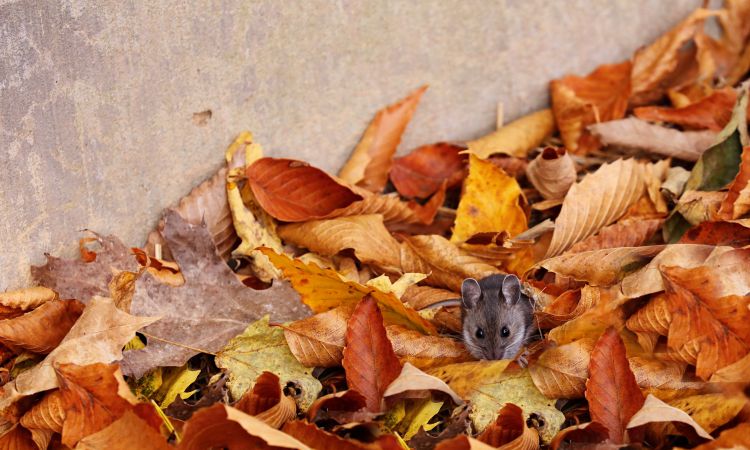 Pests are a nuisance to homeowners all around the world. They seem to come out of nowhere and they can be very difficult to get rid of. Pest problems are especially common in the fall when animals want to escape the cold. Knowing that the season is approaching is the first step in maintaining a pest-free home.
Pests are a nuisance to homeowners all around the world. They seem to come out of nowhere and they can be very difficult to get rid of. Pest problems are especially common in the fall when animals want to escape the cold. Knowing that the season is approaching is the first step in maintaining a pest-free home.
Read on to see how you can avoid a pest problem this fall. If you are currently dealing with an infestation, call Pantheon Pest Control or another professional near you.
1. Exclude the home–block entry points
Pests come crawling into the home from the outside. One of the most effective things you can do to stop them is to block their points of entry. Here are the most common entry points and what you can do to seal them shut.
- Doors. That’s right, mice and insects enter homes by crawling under the front door. Close this gap with some weatherstripping. Check the door frame for gaps and seal these shut with some caulking.
- Windows. Check your window screens for tears and fix them with patches or replace them entirely. Seal any gaps you find in the window frames with caulking.
- Siding gaps. The vinyl siding on the outer walls of the home can split apart, creating openings for mice to get into the walls.
- Wall vents. The vents on the outer walls of the home are vulnerable to rodents because they can be chewed through. Cover these with mesh to keep pests out. You can do this yourself by screwing in a thick metal mesh or by hiring a pest control company.
- Weep vents. Weep vents are the little gaps set between the bricks of the home to let airflow. Block these with stainless steel covers you can buy at the hardware store. These will keep wasps, mice, and other little critters from getting into the house while preserving ventilation.
- Utility lines. The cables that bring gas and electricity into the home are often surrounded by a gap that lets in mice and other small pests. Seal these with expanding foam, caulking, mesh, or mortar.
- Foundation cracks. Insects often come slithering into the basement through cracks in the foundation. Seal these with epoxy or contact a specialist for help.
- Roof vents. If you can access the roof safely, cover your roof vents with the same material you would on the wall vents. This will keep squirrels and raccoons from breaking into the attic. If you can’t do it yourself, call a wildlife removal company for help.
 2. Remove food from the yard
2. Remove food from the yard
Do you like to eat on the patio? Be careful that you do not spill any food on the ground or leave anything out for too long. Clean the barbecue after each use and keep it covered. Sweep the deck and clean spills.
If you can, store your garbage cans in a shed or in the garage. Use lidded cans and clean them with vinegar every few months. Most pests dislike the smell of vinegar.
If you grow to produce, consider protecting them with a fine mesh. You can find a variety of row covers in garden centers and online. Raised garden beds are great for keeping skunks out, and you can install hinged covers to them for ease of use. Harvest your produce on time and don’t let anything rot on the ground.
3. Tidy up the house
Deep clean the kitchen before the end of the summer to make the homeless attractive. Pull out your appliances from the walls and clean the surfaces beneath them. Get rid of all that grease and dust. Clean the range hood filter and the inside of the oven. Then, empty out your cabinets and wipe them clean. Throw out what is expired and store things in glass jars or containers. Keep the kitchen tidy.
Once you have cleaned the kitchen thoroughly, get in the habit of maintaining a clean house. Eat-in designated areas and vacuum the floors every week. Mop the floors every month or so. Don’t leave any food out overnight.
4. Reduce humidity
Insects and rodents are drawn to humid homes. If you suspect that your home is humid, buy a hygrometer from the hardware store or use a glass of cold water to test it yourself. take a few ice cubes, then wait about 10 minutes. And If you see lots of condensation on the glass, then you understand the room is humid too.
Make sure that your fans of the bathroom are working properly when taking a shower. Invest in some ceiling fans and a dehumidifier to bring the humidity down. Fix leaky faucets and don’t let any water sit.
5. Maintain your landscaping
Make the yard less attractive to pests by keeping it well maintained. Cut the grass and get rid of weeds on a regular basis. Trim back your bushes and hedges so they don’t get out of control and rake the leaves in the fall.
6. Use Natural Deterrents
Larger pests, like skunks and raccoons, dislike the smell of apple cider vinegar. Try spraying some around the deck to keep them from denning on your property. You can also try setting up a motion-activated, electronic deterrent in the garden. There are several different kinds available in stores. Some spray water, some flashlights, and some make ultra-high pitched sounds that scare animals away.


